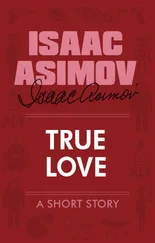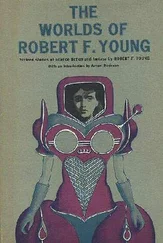| You will be competing with the other students all through and that will help you learn. |
Вам придется соревноваться с другими студентами - и это пойдет вам на пользу. |
| Private tutoring will be far less efficient, I assure you. |
Частные уроки гораздо менее эффективны, уверяю вас. |
| However, I understand the difficulty of competing with undergraduates. |
Я вас понимаю, трудно соревноваться со студентами. |
| If you don't do as well as they, you may feel humiliated. |
Если не получится так же хорошо, как у них - это может задеть вас. |
| You must remember, though, that they have already studied elementary history and you, perhaps, may not have." |
Однако, не следует забывать, что они уже прослушали курс элементарной истории, а вы, возможно,- нет. |
| "I haven't. No 'may' about it. |
- Никаких "возможно" - я не изучал историю никогда. |
| But I won't be afraid to compete and I won't mind any humiliation that may come along-if I manage to learn the tricks of the historical reference trade." |
Но я вовсе не боюсь соревнования и не думаю, что это может задеть меня - особенно, если вы научите меня премудростям пользования историческими ссылками. |
| It was clear to Seldon that he was beginning to like this young woman and that he was gladly seizing on the chance to be educated by her. |
Селдону становилось совершенно очевидно, что эта женщина нравится ему все больше и больше. |
| He was also aware of the fact that he had reached a turning point in his mind. |
Мысль о том, что она будет обучать, доставляла неизъяснимое удовольствие. |
| He had promised Hummin to attempt to work out a practical psychohistory, but that had been a promise of the mind and not the emotions. |
К нему пришло ощущение того, что с этого дня вся его жизнь круто изменится. Да,- он обещал Хьюммену все свои силы отдать разработке своей теории, но это было обещание ума, а не сердца. |
| Now he was determined to seize psychohistory by the throat if he had to-in order to make it practical. |
Сейчас же его охватило странное желание схватить психоисторию за глотку, чтобы найти ей практическое применение. |
| That, perhaps, was the influence of Dors Venabili. |
Очевидно, - это было влияние Дорс Венабили. |
| Or had Hummin counted on that? |
А, может быть, Хьюммен на это рассчитывал? |
| Hummin, Seldon decided, might well be a most formidable person. |
В таком случае, Хьвдммен, действительно -удивительный человек! |
| 19. |
19. |
| Cleon I had finished dinner, which, unfortunately, had been a formal state affair. |
Клеон I завершил обед, который, к сожалению, представлял собой скучнейшую церемонию. |
| It meant he had to spend time talking to various officials-not one of whom he knew or recognized-in set phrases designed to give each one his stroke and so activate his loyalty to the crown. |
Это означало, что он обязан провести время в беседах с разнообразными официальными представителями - даже с теми, которых он не знал. Набор стандартных фраз, выслушивание заверений в лояльности к короне. |
| It also meant that his food reached him but lukewarm and had cooled still further before he could eat it. |
А, кроме того, все это означало, что пища, когда очередь все-таки доходила до нее, успевала остыть и потерять вкус. |
| There had to be some way of avoiding that. |
Существовала возможность обойти все эти неприятные моменты. |
| Eat first, perhaps, on his own or with one or two close intimates with whom he could relax and then attend a formal dinner at which he could merely be served an imported pear. |
Есть до того, в одиночку или со своими близкими, с кем можно было расслабиться и не взвешивать каждое слово и жест. И уже после этого переходить к официальной церемонии - во время которой можно было бы обойтись ну разве что -грушевым напитком. |
| He loved pears. |
Груши он любил. |
| But would that offend the guests who would take the Emperor's refusal to eat with them as a studied insult. |
Однако, если бы он воздерживался от еды в присутствии гостей - они могли расценить его действия как оскорбление. |
| His wife, of course, was useless in this respect, for her presence would but further exacerbate his unhappiness. |
Жена для этого не подходила, поскольку ее присутствие только усугубило бы его несчастье. |
| He had married her because she was a member of a powerful dissident family who could be expected to mute their dissidence as a result of the union, though Cleon devoutly hoped that she, at least, would not do so. |
Он женился на ней потому, что она принадлежала к влиятельной династии, что позволило укрепить взаимопонимание в Империи и ослабить оппозицию. |
| He was perfectly content to have her live her own life in her own quarters except for the necessary efforts to initiate an heir, for, to tell the truth, he didn't like her. |
Он бы с радостью предоставил ее самой себе, кроме тех случаев, когда приходилось предпринимать некоторые усилия для продолжения рода. Честно говоря,- он не любил жену. |
| And now that an heir had come, he could ignore her completely. |
Вопрос с наследником был уже решен, и он практически не замечал ее существования. |
| He chewed at one of a handful of nuts he had pocketed from the table on leaving and said, |
Клеон хрустел орехами, пригоршню которых взял со стола и громко позвал: |
| "Demerzel!" |
- Демерзел! |
| "Sire?" |
- Сир? |
| Demerzel always appeared at once when Cleon called. |
Демерзел всегда появлялся мгновенно. |
| Whether he hovered constantly in earshot at the door or he drew close because the instinct of subservience somehow alerted him to a possible call in a few minutes, he did appear and that, Cleon thought idly, was the important thing. |
Он вообще всегда крутился подле дверей кабинета - так подсказывал инстинкт раболепия. Итак, он появился почти мгновенно, и Клеон подумал, что это очень важно. |
| Of course, there were those times when Demerzel had to be away on Imperial business. |
Конечно, иногда Демерзел отлучался, и Клеон всегда замечал отсутствие своего советника. |
| Cleon always hated those absences. They made him uneasy. |
Это раздражало Императора. |
| "What happened to that mathematician? |
- Что с тем математиком? |
| I forget his name." |
Я забыл его имя. |




